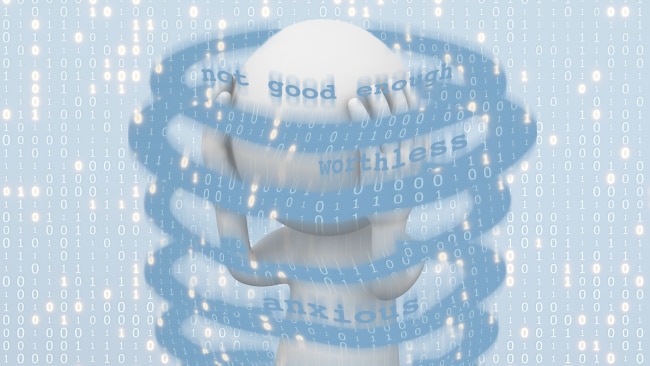Dangerous party drug to treat depression
Experts suggest ketamine may even be used as an emergency treatment for someone who is suicidal.

Experts suggest ketamine may even be used as an emergency treatment for someone who is suicidal.
There is an absolute frenzy of research around treating mental illness.
We went for decades without a genuinely new drug for treating depression or any psychiatric illness. The search for an effective treatment is taking us into the realm of mushrooms and ecstasy and in particular ketamine.
It’s a horse tranquilliser, a common anaesthetic and it is the illegal party drug. It’s also a highly effective antidepressant, according to recent studies. It could be of particular efficacy for young people struggling with depression.
Professor Chris Davey at the University of Melbourne is leading a new clinical study on ketamine treatment for youth depression. The trial is taking in participants who are between the ages of 16 and 25 and are currently being treated for depression. Participants will be treated with either ketamine or a placebo once a week over four weeks. Similar trials have been done before but rarely on younger groups.
"When you work with young people, you appreciate that depression is pretty common and it can be pretty severe. It often doesn’t get better with psychotherapy nor with regular antidepressants. So for this group of people we are really trying to work out if ketamine might provide another way of treating severe depression," Prof. Davey said.
Why ketamine?
It has been more than twenty years since it was first suggested that ketamine was an effective, fast-acting antidepressant.
“Like all things, with depression some people will show a response and some people won’t show a response at all, but [ketamine] seems to work for more than it doesn’t, which is promising," Prof Davey said.
One of the most important advantages of ketamine treatment is that it is much faster acting than more traditional antidepressants.
“You tend to see a response within one to two treatments, in the first week usually. Where as for a lot of [traditional] antidepressant medications you are waiting for four to six weeks before it starts to have an antidepressant effect.”
Four weeks is a really long time when you are suffering from the most severe forms of depression. Because ketamine appears to be so fast-acting, research is being conducted as using it as emergency treatment for someone who is suicidal.
“Ketamine is effective for depression. It seems to be also effective for reducing suicidal thoughts, over and above its effect on depression. Obviously the two are pretty linked but even beyond treating depression it does seem to reduce people's suicidal thoughts.”
Is this a slippery slope?
Despite the early, promising results, there are still concerns about ketamine gaining a wider release as a treatment for depression. Its reputation as a party drug has raised questions about its suitability for patients with a history of drug abuse.
“I think it’s an important issue around Ketamine, in the US, as well as Australia, are worried about unleashing something like the opioid epidemic… I think we would be very hesitant to do something similar." If suddenly ketamine was being widely prescribed, there are a couple of things that we are doing to try and prevent that.”
As a safeguard, patients are not able to take ketamine home with them. The treatments are contained in clinic, and are usually administered via either an IV drip or a nasal spray. Patients are then monitored for two to four hours before being released.
“I think it’s an important safeguard, although it does restrict access somewhat. It makes it harder for people in regional areas, but at this stage it’s still early on and I wouldn’t want to unleash an epidemic of ketamine misuse into the community” warns Prof Davey.
Clinically, the dose is very precise and much lower than it would be if taken as recreationally.
“It seems like the dose has an inverted U shape where too low a dose doesn’t have an anti depressant effect but too high a dose also doesn’t have an antidepressant effect.”
This is called the goldilocks effect - taking ketamine recreationally is not going to help with depression, nor is taking it clinically going to have the same dissociative effect that recreational use does.
The future is bright for ketamine as a treatment for depression in Australia
This study will focus on both its potential for impact on young Australians, as well as its longevity as a treatment.
"One of the big questions is how long does that antidepressant last for. Is it enough in that four weeks to kick start a recovery or is it a brief response followed by a relapse into depression?”
The study will be continuing intake until the rest of the year and results can be expected in 2023.
“Like all treatments for depression, at least all medication treatments for depression, the exact mechanisms are unknown,” explains Prof Davey. The lack of understanding surrounding the physical causes of depression is a consistent problem when it comes to medical treatment options.
If you or someone you know needs help, contact Lifeline on 13 11 14 or in emergencies call 000.


